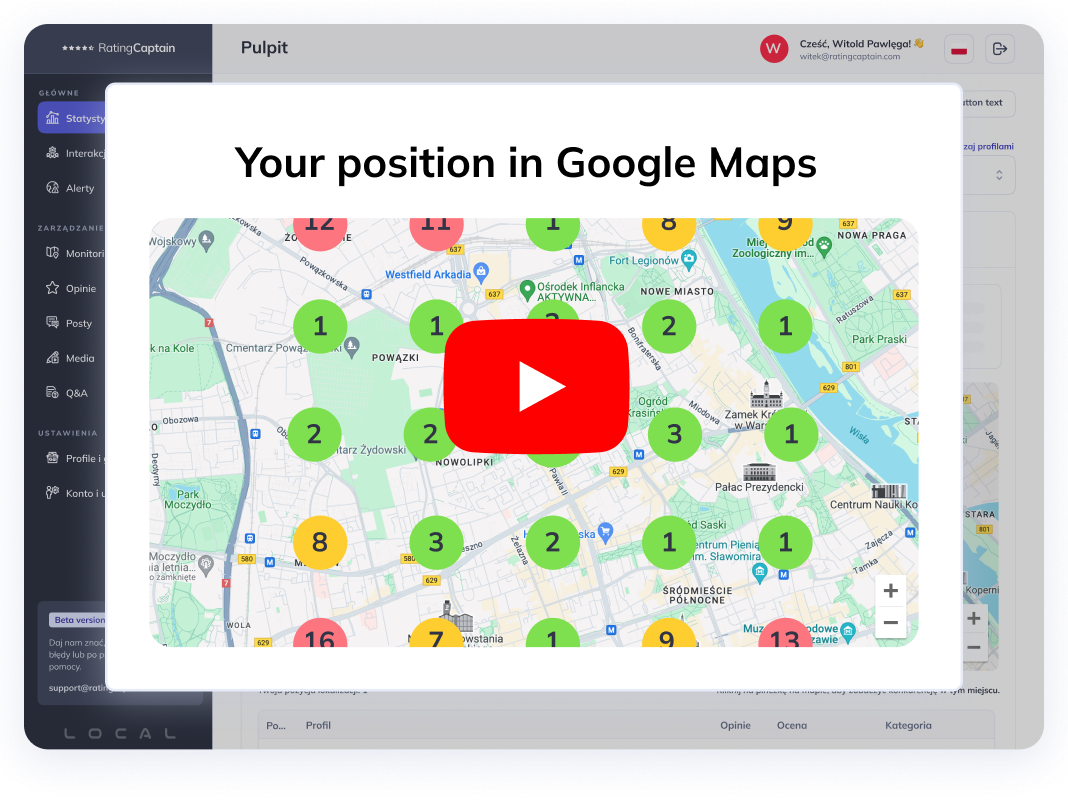

The European Union tackles fake opinions - find out how to avoid penalties.

Table of contents
Over 90% of consumers check online reviews before making a decision to purchase a product or service. Additionally, they often trust these reviews as much as the opinions of family and friends. Unfortunately, fake reviews on the internet are commonplace and more and more companies are falling victim to them.
Furthermore, there is no shortage of businesses that buy fake reviews to boost their ratings on review platforms. That is why the European Commission has addressed such practices in the directive on unfair trading practices. Unfortunately, even ethically operating companies can be penalized, so check how to avoid this.
Fake reviews in the crosshairs of the European Commission
EU directive (Directive (EU) 2019/2161) imposes an obligation on businesses that allow customers to post reviews to indicate whether and how they verify that these reviews actually come from consumers who have used or purchased the product.
Steps that can be taken to verify the authenticity of reviews may include requiring registration before posting a review. You can also ask the person leaving the review for information that confirms they have actually used the company's offering. This could be, for example, an order or reservation number. The business should also establish clear rules for individuals posting sponsored reviews.
Tools for monitoring mentions and reviews online are also a solution. You can also use tools to gather reviews from your own customers, such as the Rating Captain app, which facilitates meeting this obligation through automation and transparency in the review acquisition process.
How to recognize fake reviews on Google?
Google My Business listings were identified in a study by Uberall (conducted on 4 million reviews) as the ones most frequently containing fake reviews. It is also worth noting that Google is still the platform where users most often check reviews about companies.
As it turns out, the most common type of fraud is "fake profiles with fake reviews" generated by the company itself. How to recognize such reviews? Several aspects can help determine whether a review is fake::
- Average rating and number of reviews - customers most often trust companies whose rating falls within the range of 4.5 - 4.8. It is worth noting that 5 stars with hundreds of reviews on a listing do not appear credible to consumers, so they may approach such a company's offer with caution.
- Length of the review - negative reviews can be quite long, as customers often want to describe their unpleasant experience in detail. On the other hand, positive reviews are usually very short and consist of single words. Furthermore, satisfied customers most often give star ratings without providing arguments for their rating.
- Frequency of reviews - if a company receives many positive reviews in a short period of time and then suddenly no new comments appear on the listing, it is very likely that the recommendations were purchased to boost the rating.
- Excessive praise of the product or company - overly describing the advantages of a product or service is not a natural expression of customer satisfaction.
- Reviews written by employees - these are difficult for consumers to verify. The detection of such practices can only occur by chance, for example, when a consumer recognizes, based on the username, that it is their acquaintance who works for the company.
- Complimenting the service - such reviews are most often left by employees of the company who are trying to emphasize how wonderful the person working there is.
- Fake accounts - a strange or funny username that left a comment may be a sign that the account was created for the purpose of posting fake reviews. This can be verified by clicking on the username and checking other written reviews.
However, it is important to note that detecting any of these aspects does not always indicate unethical behavior. Therefore, detecting fake reviews is not always easy. The quality of reviews often depends on the industry. Imagine that you are renovating your apartment and you buy most of the elements of the new decor (e.g. wallpaper, moldings, paint) from one store, which also greatly helps you create the perfect spaces in your home. It is very likely that after completing the renovation, you will happily share your opinion, even adding photos, which are often cited as an indicator of fake reviews.
I think you can see how difficult it is to impose guidelines that will always confirm whether a review is genuine.
How to deal with fake and negative reviews on Google Maps?
Usually, business owners notice fake reviews when negative reviews appear on their profiles, which are most likely the result of unfair competition. Of course, you can report comments that are not true. However, keep in mind that Google removes reviews if they violate the guidelines (e.g. if they are offensive), so your report may not always be resolved in your favor. Therefore, we recommend responding to all comments as quickly as possible, as potential customers can read them before they are removed, and your response can influence their decision to choose your company.
If a false negative comment is not removed, you can inform potential customers in your response. You can also contact Google support, which may remove the indicated reviews upon your request. Learn more about removing Google reviews.
Don't wait for negative comments to appear on your Google My Business listing or any other business profile. Regularly gather positive reviews from your customers, as they can overshadow negative reviews and serve as evidence that while you may have some minor missteps, you learn from them and the vast majority of your customers are satisfied.
How to avoid penalties?
The obvious answer is do not buy reviews. However, that's not all. The EU directive provides for penalties for oversights that are detected during inspections. The document clearly states: "[...] it shall be prohibited for traders to claim that reviews have been submitted by consumers who have actually used the product or purchased it, if no reasonable steps have been taken to verify that those reviews come from such consumers".
However, verifying reviews is not everything. If you publish customer reviews on your website, for example, it is important to include information:
- whether all reviews are published,
- where they are sourced from,
- how the average rating is calculated,
- whether sponsored reviews affect the rating.
It is also important for the disclosure to be in the same place where consumer reviews are published.
Transparency is key. If you have nothing to hide, you don't have to worry about penalties. It is also beneficial to use reputation management tools, such as the Rating Captain app, which gathers reviews from your real customers and notifies you of each new external review. Furthermore, you can display the acquired reviews on your website using widgets customized to match its design. Therefore, you don't have to worry about potential inspections, as you can easily prove that the reviews come from your customers who received an invitation to leave a review.
Please rate this article
Local SEO tool
for agencies
Automate your local SEO
and track Google Maps visibility

